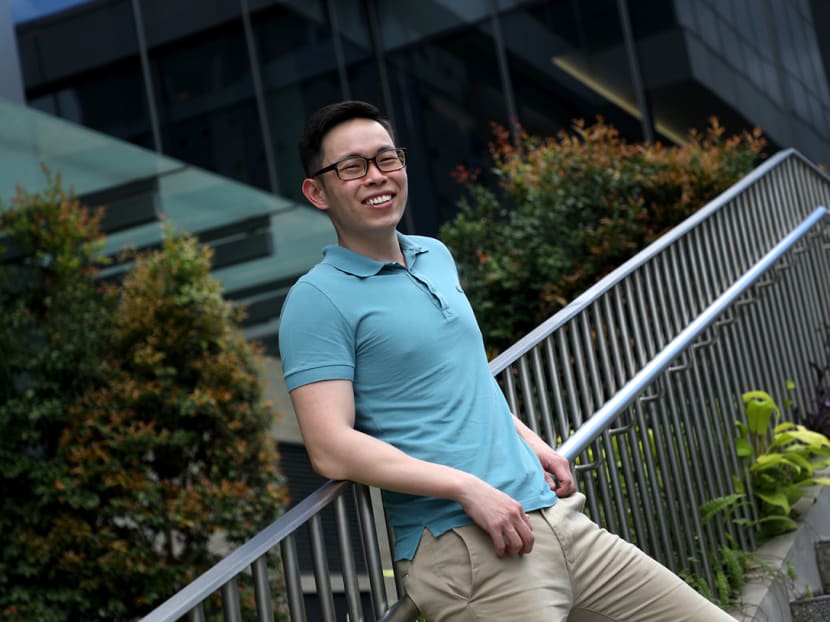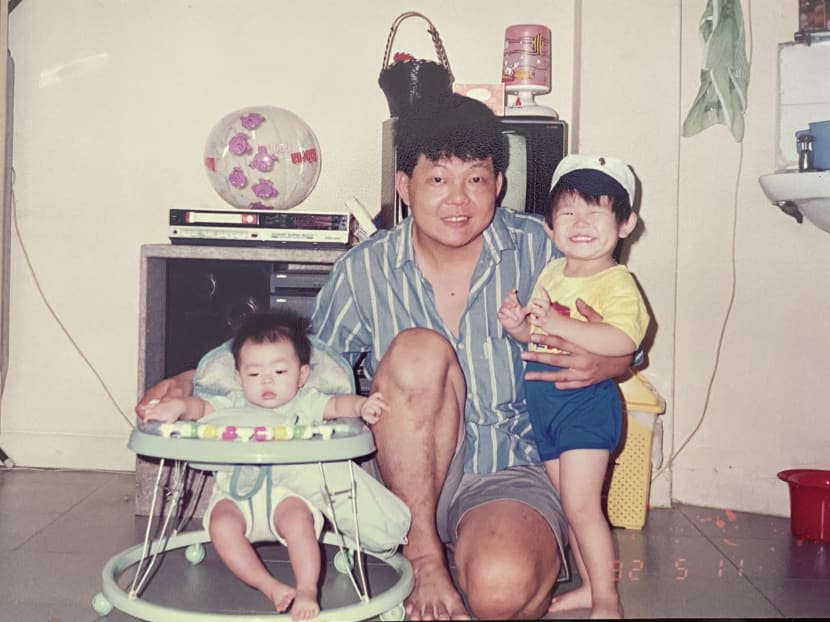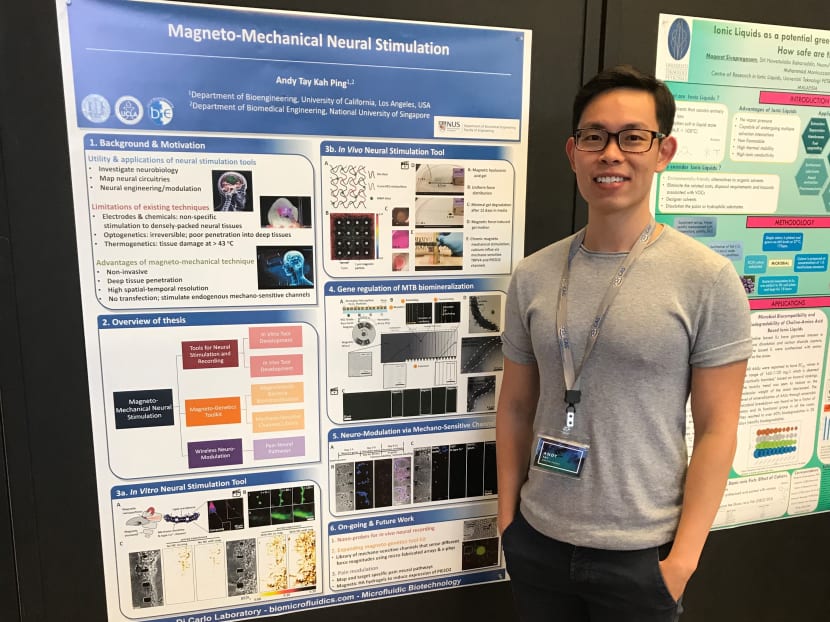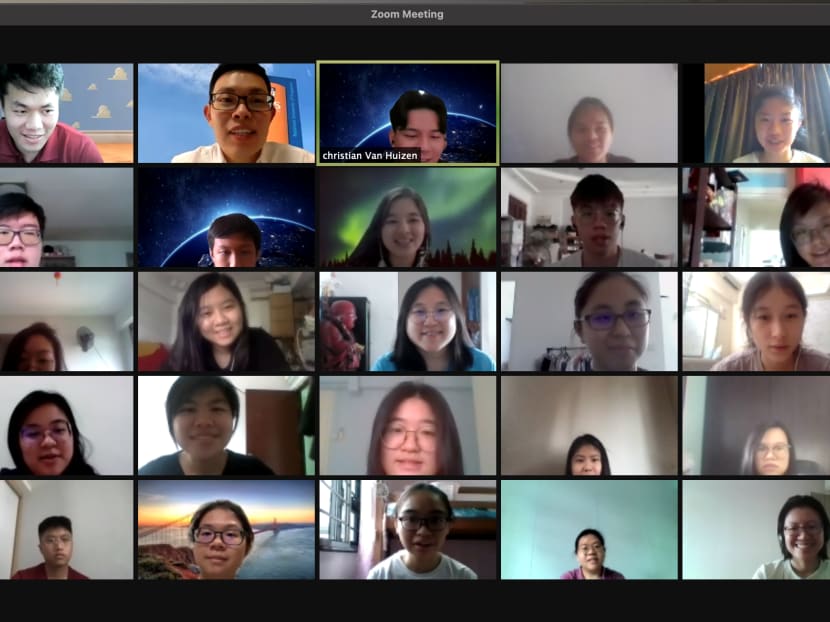Gen Y Speaks: I am lucky to find some success as an NUS academic. This is how I am paying it forward
I am an assistant professor of biomedical engineering at the National University of Singapore (NUS). I had never thought that such a job was within my reach coming from a low-income family. Although I have worked diligently for my current achievements, increasingly, I realise that many of my accomplishments are influenced by other factors, for which I can claim little credit.

The author (pictured) says he is lucky to have met nurturing mentors who supported his education and career.
I am an assistant professor of biomedical engineering at the National University of Singapore (NUS).
I had never thought that such a job was within my reach coming from a low-income family.
My parents had very little formal education. If my memory serves me right, the one academic lesson they ever gave me was how to write the alphabet.
That lesson did not go far because my dad became impatient when I could not understand why the small letter "a" was not simply a scaled-down version of capital letter "A", like the letters "c/C" and "u/U".
Many years later, I learnt that having to teach a questioning child after working long hours can wear one’s patience.
Although I have worked diligently for my current achievements, increasingly, I realise that many of my accomplishments are influenced by other factors, for which I can claim little credit.

THE LUCKY CHILD
I was lucky to have met nurturing mentors who supported my education and career.
My junior college biology teacher went out of her way to contact a friend working in a university who offered me a lab internship after my National Service.
That opened my first door to research.
My undergraduate mentors in NUS wrote compelling recommendation letters to support my graduate school and scholarship applications. That was my first step to becoming a researcher.
My PhD advisor involved me in challenging projects and trusted me to lead them. That got me the Forbes 30 Under 30 award and built my confidence for establishing my very own research lab.
My senior colleagues at NUS shared tips and supported me in grant applications.
That helped me secure NUS’ Presidential Young Professorship award and a recent feature as a ‘30 and under Young Singaporeans to watch’ from The Straits Times.
Beyond all these, I am also lucky to be healthy, lucky to have supportive family members and friends, and lucky to be born in a country where scientific research is valued.
SPREADING LUCK
I have not always appreciated how lucky I am.
As a child and teenager, I was envious of my classmates who could afford to pursue their out-of-classroom interests such as drawing and going on overseas trips which broadened their horizons.
I vividly remember the sense of helplessness not knowing whether lacking these opportunities would affect my prospects in life.
Given these experiences, I can relate to the mounting unhappiness, especially among young Singaporeans from poorer families, who are likely to feel the odds of climbing the social ladder through sheer hard work alone increasingly stacked against them.
The Singapore Government is responding to the problems of rising social inequality.
For instance, it has increased financial bursary for polytechnic and university students from low-income families. To give every child a good start, the Government is doubling its annual spending on the preschool sector to S$1.7 billion by 2022.
However, given the complexity of social inequality, I think that this issue is best tackled when we have support — both monetary and non-monetary — from the Government and society at large.

HOW I AM SHARING MY LUCK
There are many meaningful ways to share luck and help address social inequality. Donating to charities and volunteering come to mind.
I am choosing to share my luck the way I have benefited from it — by mentoring students from low-income families who have shown interest and aptitude in scientific research.
Survey results from many countries have shown that students from poorer backgrounds are less likely to enter and stay in Stem (science, technology, engineering and mathematics).
Although there is no official data from Singapore, I suspect this is likely the case based on my conversations with local researchers.
That is why for the past six years, I have been volunteering in a mentorship programme run by the New York Academy of Sciences where I remotely mentor pre-university students from minority ethnic groups and low-income families all over the world, including in Singapore.
As a mentor, I provide students with tips for their university applications and guide them through science competitions.
One African-American mentee recently messaged me thanking me for building his confidence as a minority student in Stem.
I am so proud that he has finished his internship in a top biotech company and is graduating with a degree in Stem this year.
Of course, people do not benefit from mentorship equally. For instance, I have had one instance when a mentee was completely unresponsive despite me reaching out several times.
In this particular case, I took it as a sign that the student might not need my guidance and that it was better for me to invest my effort in another student who needed it more.
Right now, I am leveraging my position as an assistant professor to maximise the impact of my mentoring.
For instance, in collaboration with the Chinese Development Assistance Council (CDAC), we recently hosted career-building lessons over Zoom.
In the online sessions, I shared about the process of university and scholarship applications. I also equipped students with skills to write resumes and personal statements, and provided them tips on job interviews.
As a follow-up to this workshop, I am discussing with CDAC ways for me to provide research exposure to students from low-income families in the future.
Some of our plans include a lab tour, one-day lab shadowing and, for more enthusiastic students, a three-month lab internship.

Besides this mentoring programme with CDAC, I also mentor students in the NUS Engineering Scholars programme where I share tips about graduate school applications and work-life balance.
I feel strongly about sharing my luck through mentorship because I am a product of good mentorship and I have seen my mentees who started off with little confidence now excelling in Stem.
I encourage you to consider mentoring if you can.
Mentoring can come in many forms (that we may not be aware of now) and with our personal experiences, most of us have something to offer to someone more junior.
Recently, I received a great piece of news that my science outreach proposal has been selected by an international science outreach organisation.
With this funding, I am hoping to train NUS graduate students in mentorship so that they can then go on to mentor local secondary and pre-university students from less privileged backgrounds.
I hope to develop a culture of luck sharing through mentorship to make Singapore a better place.
ABOUT THE AUTHOR:
Andy Tay Kah Ping, 30, is an assistant professor of biomedical engineering at the National University of Singapore, where he develops new materials for engineering the immune system. He is a 2020 World Economic Forum Young Scientist.









